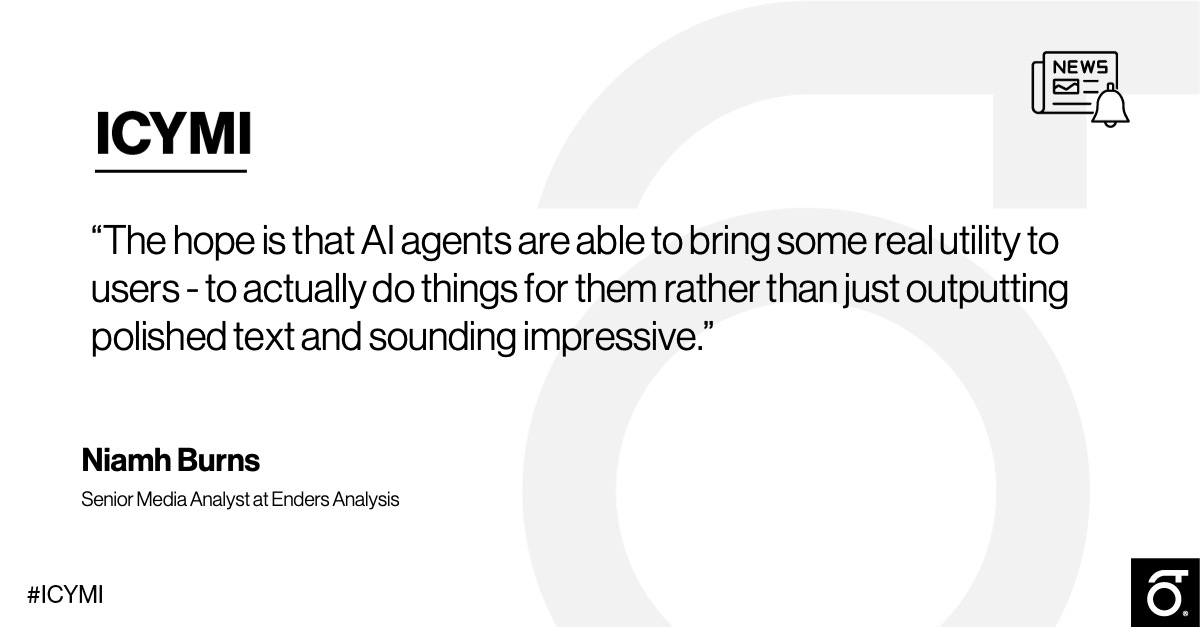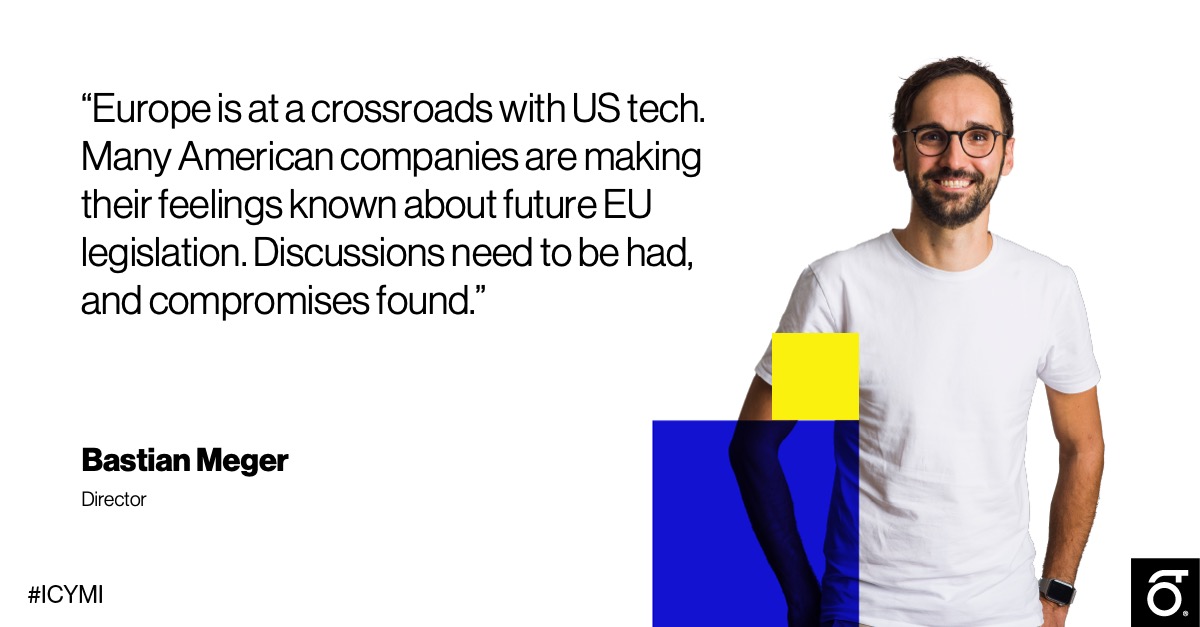Welcome to ICYMI – a weekly snapshot of European news stories that have given me pause for thought. ICYMI is a chance for you to go beyond the front-page headlines and find out what other stories may be worthy of your attention. This week:
- A big report into whether Europe can wean itself off US tech
- Google AI search is officially bad news for media brands
- The browser that zaps AI content
AI and its impact on search and the media continue to dominate the news not just in Europe but across the globe. Last week both OpenAI and Perplexity independently announced the launch of AI-powered browsers that are designed to integrate generative AI directly into the browsing experience.
Then this week OpenAI has confirmed that users of ChatGPT will be able to ask an AI agent to find restaurant reservations, go shopping for them and even draw up lists of candidates for job vacancies.
Interestingly the new chatbot is available across the globe apart from one region – the EU – leading some critics to speculate that the company is waiting to see how the organisation’s AI legislation develops. Meta, for example, recently announced that it would not follow the EU’s AI code of practice.
The agent combines the powers of AI research tools with the ability to take control of web browsers, computer files and software such as spreadsheets and slide decks.

Speaking to The Guardian Niamh Burns, senior media analyst at Enders Analysis said “the hope is that agents are able to bring some real utility to users – to actually do things for them rather than just outputting polished text and sounding impressive.”
The growing use of AI in search is continuing to cause issues for media companies. Handelsblatt in Germany is reporting that Google’s new-ish AI Overview which delivers instant, summarised answers at the top of search results, is dramatically reducing clicks to original websites and slashing traffic – especially for news, niche portals, and comparison platforms.
The issue is most pronounced in the US but is now starting to impact European countries too including Germany. Some media companies have agreed deals with OpenAI to enable them to crawl their content to provide answers for ChatGPT. Others have begun the process of blocking the AI bots from accessing their stories. Yet how the media companies deal with Google, which has been a trusted partner for many of them for decades now remains to be seen.
Brands continue to desert X
Horizont in Germany has a report on another media shift. The website states that over half of German companies have reduced or stopped using X (formerly Twitter), citing Elon Musk’s erratic behaviour – including his party ambitions and feud with Trump – as damaging to the platform’s credibility. A Bitkom survey shows dwindling advertising, rising criticism of Musk’s influence, and widespread calls for tighter platform regulation.

The scramble for countries to get a lead on each in terms of their use of AI continues, though a new report published by Trouw has uncovered that the Netherlands is falling behind. While the company scores high in general digital literacy, AI-specific readiness is lacking. Only 66% of Dutch employees use AI tools, compared to over 80% in countries like Spain and Switzerland. This lag in AI readiness poses a threat to the country’s knowledge economy and risks widening the gap between digital haves and have-nots. Sectors such as healthcare and technical trades are particularly vulnerable, as they struggle with high workloads and limited resources for training.
Meanwhile in the UK the way that AI could be used in the future is likely to be shaped by the imminent announcement of the Competition and Markets Authority (CMA) on the market practice of the two leading cloud providers Amazon Web Services (AWS) and Microsoft Azure
In an opinion piece The Register argues that the UK’s ambition to become a global AI superpower hinges on a vibrant and competitive cloud market. The next few days will show if its competition regulator really appreciates both the pace of change and the scale of remedies needed to achieve both things.
It states that if businesses are locked into a handful of providers, their ability to experiment, scale, and develop cutting-edge AI applications will be severely constrained.
FT analyses Europe’s relationship with US tech
The FT has a long article discussing the key question for countries across Europe – what kind of relationships should they have with US tech companies in the future? Can they continue to deliver the companies that can challenge US tech supremacy? Or should the region just accept that they do not have the tools, investment, or personnel to take on the might of Silicon Valley.
“We have been on the sovereignty topic for the past 20 years,” Benjamin Revcolevschi, chief executive of OVHcloud says. But since the election of US President Donald Trump, the tone of the political conversations has changed, he adds. “This is truly a different world.” Europe is grappling with uncertainty over the US president’s long-term commitment to the transatlantic security alliance and his tendency in negotiations to conflate issues such as trade, defence, and regulation.
Trump has fuelled anxiety among European governments and companies over privacy and data access and prompted concerns that the US could suspend or block the operations of US tech companies in Europe altogether. Those operations are both deep and wide. Amazon, Microsoft, and Google control more than two-thirds of the European cloud computing market. Google and Apple prevail in the mobile phone operating systems in the EU, while Google dominates the global search market. OpenAI’s ChatGPT is the leading artificial intelligence chatbot in Europe, while the social media platforms that millions of Europeans use are mostly US-owned.
Finally, if you have had enough of AI content there is a solution. PCMag reports that the privacy-focused Google Chrome alternative DuckDuckGo has rolled out a new feature that lets you hide AI-generated images from your search results. The browser admits the new feature is not perfect, acknowledging that it “won’t catch 100% of AI-generated results,” but it promises to “greatly reduce the number of AI-generated images you see.”


About the author
Bastian Meger is Director at Tyto and an experienced media strategist. He works with clients across a range of B2B tech sectors to shape PR and communication narratives that resonate across Europe and deliver lasting impact.